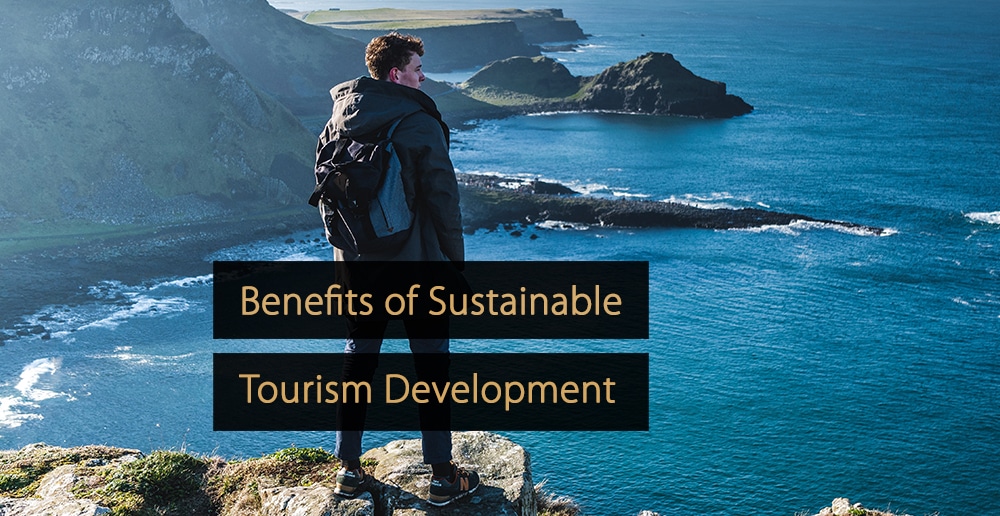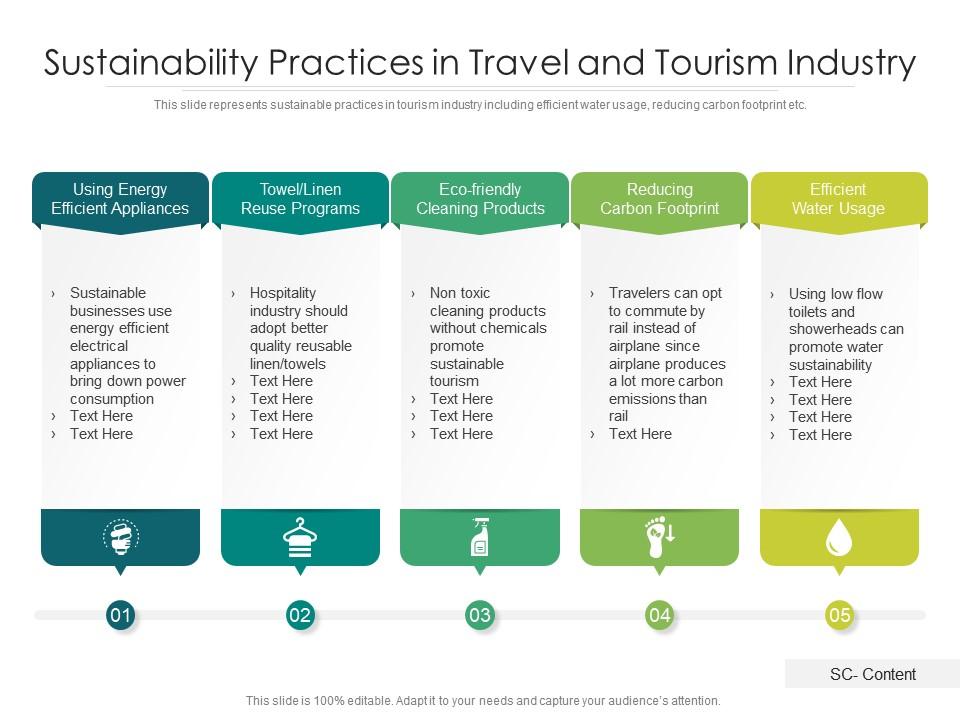How Can Tourism Be Developed Sustainably?
How can tourism be developed in a sustainable way? This is a critical question for destinations around the world as they seek to balance the economic benefits of tourism with the need to protect their natural and cultural resources. In this article, we will explore the key principles of sustainable tourism development, including environmental, social, and economic sustainability, and provide examples of successful initiatives that are helping to create a more sustainable tourism industry.
Sustainable tourism development is a complex and challenging issue, but it is essential for the long-term success of the tourism industry. By working together, stakeholders can create a more sustainable future for tourism that benefits both visitors and local communities.
Environmental Sustainability

The natural environment is the foundation of tourism. Preserving it is essential for the long-term viability of the industry.
Eco-friendly practices in tourism include:
- Using renewable energy sources
- Conserving water
- Reducing waste
- Protecting biodiversity
Overtourism
Overtourism occurs when the number of tourists in a destination exceeds its carrying capacity. This can have a negative impact on the environment, including:
- Pollution
- Deforestation
- Erosion
Solutions to overtourism include:
- Managing visitor numbers
- Developing sustainable tourism infrastructure
- Educating tourists about responsible tourism
Social Sustainability
Tourism plays a vital role in fostering cultural understanding and exchange. It allows people from diverse backgrounds to interact, learn about each other’s cultures, and break down stereotypes. Cultural tourism, heritage tourism, and educational tourism are examples of tourism types that promote cultural understanding.Community-based tourism is a form of tourism that directly involves local communities in the planning and operation of tourism activities.
It empowers local communities, generates income, and promotes cultural preservation. By engaging local communities, tourism can contribute to sustainable development and improve local livelihoods.However, tourism can also have negative social impacts. These include:
Overcrowding
Uncontrolled tourism can lead to overcrowding, which can strain local infrastructure and resources.
Displacement
Tourism development can sometimes lead to the displacement of local residents, particularly in areas where land is scarce.
Cultural commodification
Tourism can sometimes lead to the commodification of local cultures, which can erode their authenticity and significance.To mitigate these negative impacts, it is important to implement sustainable tourism practices. These include:
Limiting visitor numbers
Managing the number of tourists in popular destinations can help reduce overcrowding and its associated impacts.
Involving local communities
Engaging local communities in tourism planning and operation can help ensure that tourism benefits the community and minimizes negative impacts.
Respecting local cultures
Tourists should be respectful of local customs and traditions, and avoid engaging in activities that could be seen as disrespectful or offensive.By adopting sustainable tourism practices, we can minimize the negative social impacts of tourism and maximize its potential for cultural understanding, community empowerment, and economic development.
Economic Sustainability

Tourism is a major economic driver, generating jobs, revenue, and stimulating local economies. Sustainable tourism practices can maximize these benefits while minimizing environmental and social impacts.
Examples of successful sustainable tourism models include ecotourism, which focuses on preserving natural ecosystems while providing economic opportunities for local communities, and community-based tourism, which involves local residents in the planning and operation of tourism activities.
Balancing Economic Growth with Environmental and Social Considerations
Balancing economic growth with environmental and social considerations is a challenge in tourism development. Over-tourism can lead to environmental degradation, social disruption, and a decline in the quality of life for local residents.
To mitigate these impacts, sustainable tourism practices include:
- Limiting visitor numbers to prevent overcrowding
- Protecting natural resources and cultural heritage
- Investing in local infrastructure and services
- Promoting responsible tourism practices among visitors
Infrastructure and Planning: How Can Tourism Be Developed In A Sustainable Way

Sustainable tourism infrastructure and planning are crucial for preserving the environment and enhancing the overall tourism experience. This involves implementing measures to minimize negative impacts on natural resources, protect cultural heritage, and ensure the well-being of local communities.
Sustainable Tourism Infrastructure
Sustainable tourism infrastructure includes eco-lodges, green hotels, and public transportation systems that prioritize environmental conservation and energy efficiency. Eco-lodges, for instance, are designed to blend harmoniously with the surrounding environment, utilizing sustainable building materials and renewable energy sources. They often offer educational programs and activities that promote environmental awareness among guests.
Land-Use Planning and Zoning Regulations
Land-use planning and zoning regulations play a vital role in managing tourism development and preventing overdevelopment. These regulations can designate specific areas for tourism activities, ensuring that development is compatible with the surrounding environment and local communities. Zoning regulations can also establish limits on building heights, density, and land use, preventing excessive construction and preserving the natural landscape.
Role of Technology in Enhancing Sustainability
Technology can significantly enhance sustainability in tourism. Smart grids, for example, can optimize energy distribution and reduce consumption in tourist areas. Mobile applications can provide tourists with real-time information on sustainable transportation options, local attractions, and responsible tourism practices. Additionally, online booking platforms can promote eco-friendly accommodations and activities, encouraging tourists to make more sustainable choices.
Education and Awareness

Educating tourists and locals about sustainable tourism practices is crucial for its long-term success. By raising awareness, we can encourage responsible behavior and minimize negative impacts on the environment and local communities.
Successful awareness campaigns have employed various strategies to promote responsible tourism. For example, the “Leave No Trace” campaign encourages outdoor enthusiasts to minimize their environmental impact by packing out what they pack in and respecting wildlife. Similarly, the “Tourism Cares” initiative educates travelers about the importance of supporting local businesses and respecting cultural heritage.
Role of Schools and Universities, How can tourism be developed in a sustainable way
Schools and universities play a vital role in fostering a culture of sustainability in tourism. By incorporating sustainable tourism principles into their curricula, they can equip future professionals with the knowledge and skills needed to operate responsibly. Additionally, educational institutions can engage in research and outreach programs to promote sustainable tourism practices within their communities.
Ultimate Conclusion

Sustainable tourism development is a journey, not a destination. There is always more that can be done to reduce the negative impacts of tourism and create a more positive impact on the environment and local communities. By working together, stakeholders can create a more sustainable future for tourism that benefits everyone.
Key Questions Answered
What is sustainable tourism?
Sustainable tourism is a form of tourism that seeks to minimize the negative impacts of tourism on the environment and local communities while maximizing the positive impacts. It is based on the principles of sustainability, which include protecting the environment, respecting local cultures, and supporting local economies.
What are the benefits of sustainable tourism?
Sustainable tourism has a number of benefits, including:
- Protecting the environment
- Respecting local cultures
- Supporting local economies
- Creating jobs
- Improving infrastructure
- Promoting peace and understanding
How can I travel sustainably?
There are many ways to travel sustainably, including:
- Choosing sustainable destinations
- Booking with sustainable tour operators
- Staying in sustainable accommodations
- Eating at local restaurants
- Shopping at local businesses
- Respecting local customs and traditions
- Minimizing your environmental impact

